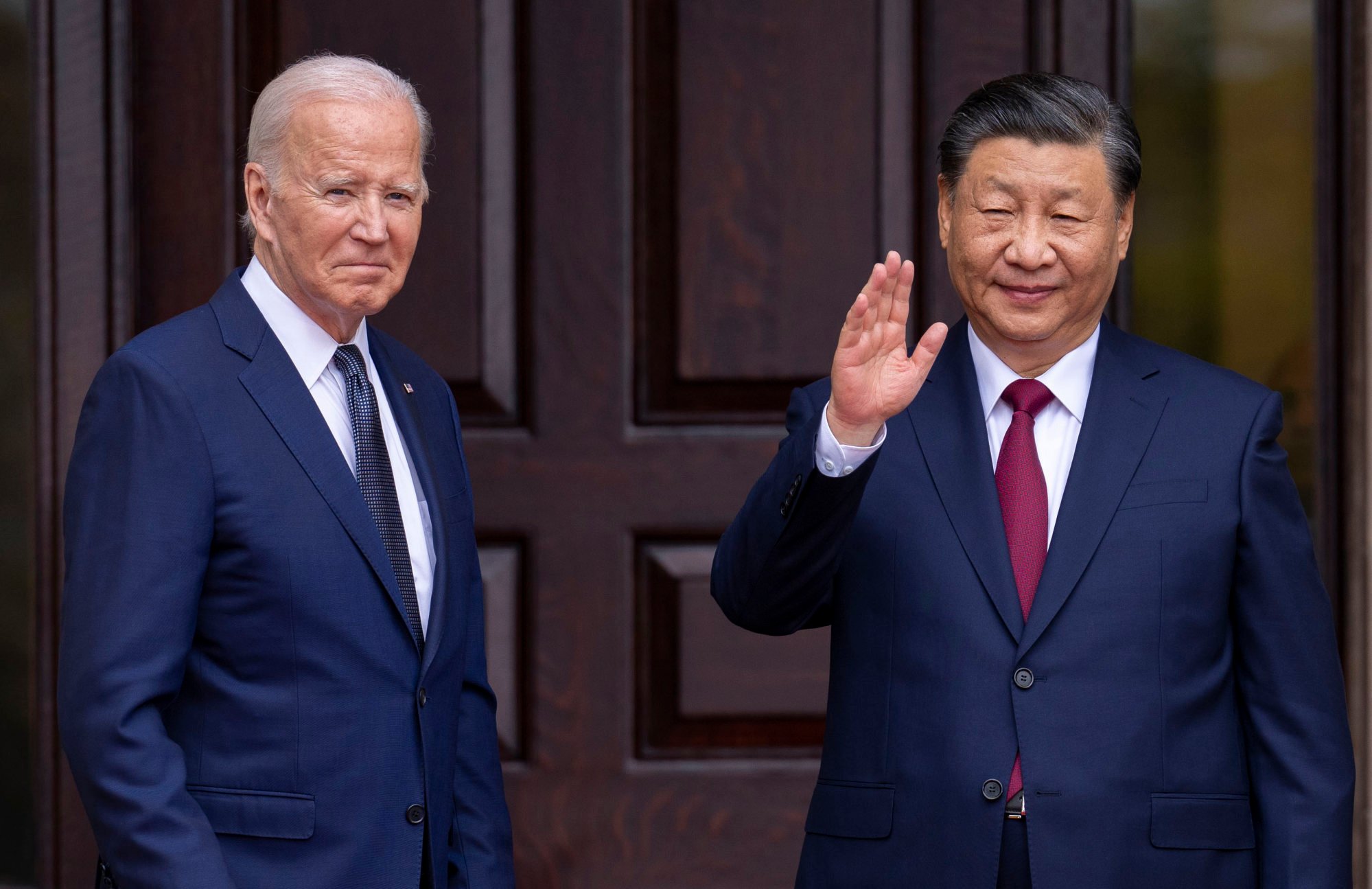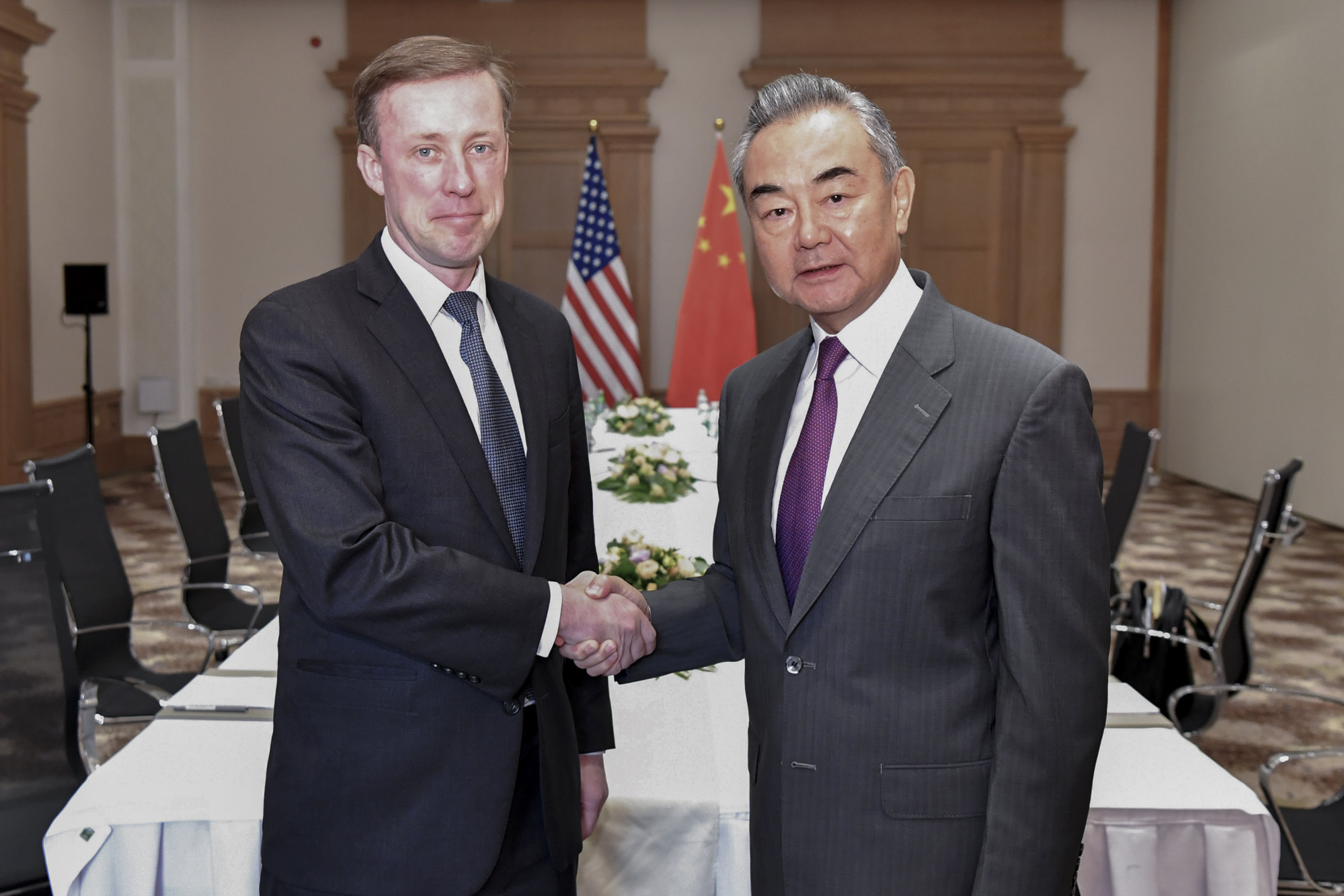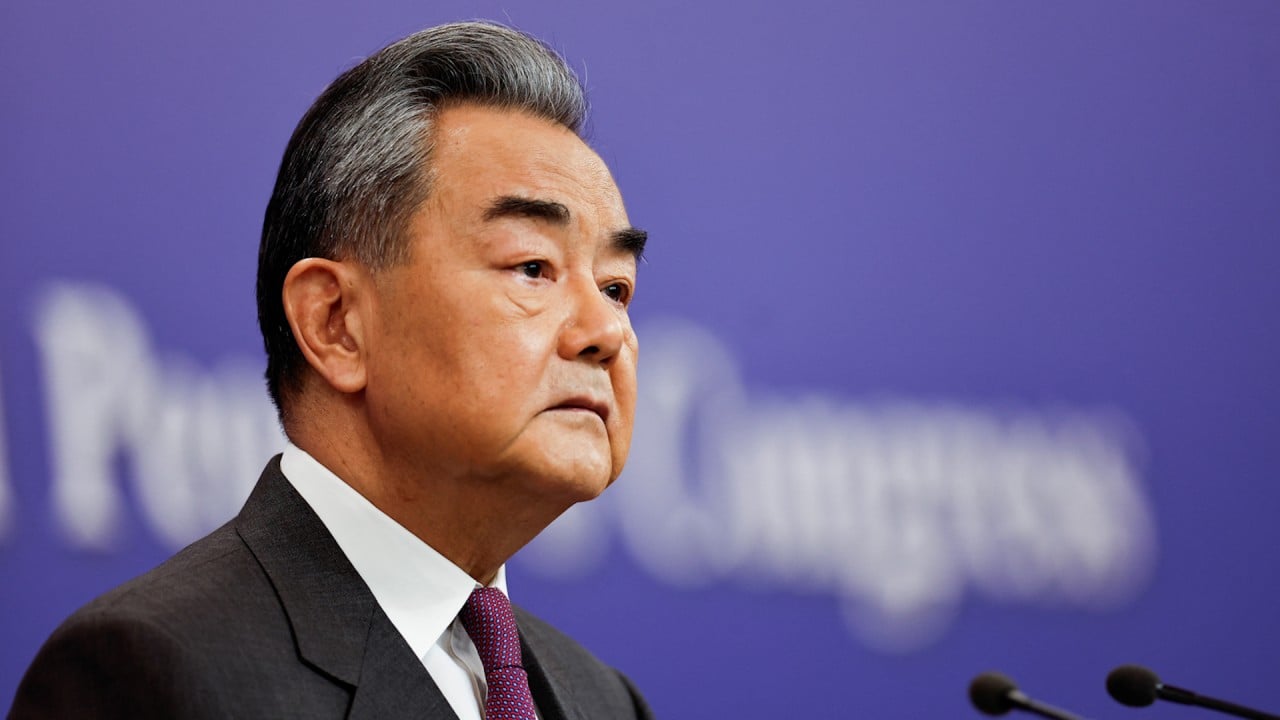“The notion of peaceful coexistence is very laudable as a long-term goal. But in today’s environment, I think it’s a step too far,” said Dennis Wilder, a professor of foreign affairs at Georgetown University who directed the Central Intelligence Agency’s East Asia and Pacific division in 2015 and 2016.
“This is a strategic competition, and we need to be careful not to escalate it to the point of sparking a new Cold War or World War III.”
Wilder added that a major problem is that both countries pride themselves on being “highly exceptional” in human history – a perspective that doesn’t breed humility or compromise.
While the United States sees itself as a “city on a hill” that represents the greatest democracy in history, China sees itself as the guardian of 5,000 years of history, a near-perfect blend of Confucianism and Marxism, Wilder said. And while Beijing sees the United States as trying to contain China, Washington sees China as a hegemon trying to replace the United States.
Experts say coexistence between a rapidly rising China and a relatively declining United States will be difficult in the coming years, given deep-rooted ideologies, deep-rooted mistrust and a poor track record of compromise, as tensions continue to rise over Taiwan, the South China Sea, the war in Ukraine, tech exports, economic coercion and military alliances.
“The differences in our fundamental values are enormous,” Wilder added. “This is a reality we have to accept.”
Michael Mazars, a senior political scientist at the RAND Corporation, argued that conflict is not inevitable. “Coexistence is possible and necessary,” the former special assistant to the chairman of the Joint Chiefs of Staff added. “But I’m not sure it’s likely to happen.”
Experts say steps the U.S. could take to avoid or minimize conflict include adopting a foreign policy that goes beyond competition with China, accepting China’s greater influence in some parts of the world, assuring Beijing that the U.S. has no interest in Taiwan independence, scaling back military operations in China’s immediate neighborhood, and committing to free and fair trade.
They said China’s to-do list should include scaling back its drive for dominance in the Indo-Pacific region and ending its large-scale industrial espionage, territorial coercion against its neighbors and punitive measures against countries it deems affrontable on Taiwan and other “core” issues.
Experts on a recent panel at the Harvard China Forum said other steps China could take include adopting a new economic model not based on large exports and trade surpluses, assuring Washington that it has no interest in interfering in U.S. elections, as well as committing to free and fair trade, and refraining from cyberattacks and hacking, especially against political and social targets.
If we’re talking about verbal guarantees, then they don’t have much value: neither side has much trust that the other will do what they say they will.
“It’s a pretty ambitious list,” acknowledged Mazars, the former vice dean of the National War College. “China is a rising, disgruntled power in this relationship, and so it’s probably going to be more ambitious than the United States.”
“This is just a symptom of a deeper problem,” Wang said. “The United States has a major deficiency in the Chinese language that will have serious implications for the possibility of peaceful coexistence in the long term.”
A RAND Corporation report released in April, “The Fates of Nations: Diversity in Great Power Success and Failure in Long-Term Competition,” looked at 30 great-power competitions from 1816 to 2010 and found that they all ended in three ways: One collapsed or lost the war, one side couldn’t keep up technologically or economically and gave up, or one rose above the competition and decided that doing well while protecting its core national interests was better than racking up points..
“Sometimes you only realize this after a disaster has happened,” Mazars said.
In U.S.-China relations, Taiwan is the most obvious potential hot-button crisis.

“We’ve been lucky so far,” said William Thompson, professor emeritus of political science at Indiana University Bloomington. “It can be very difficult for politicians to control.”
“If you’re talking about verbal assurances, they don’t have much value,” he added. “Each side doesn’t trust the other to do what they say they will.”
The Biden-Xi summit set an important tone from the top, with the text written and every detail scrutinized around the world, but analysts said the confidence-building measures that have flown out of the spotlight are at least just as important.
Analysts say meetings between Chinese Foreign Minister Wang Yi and U.S. National Security Adviser Jake Sullivan in Vienna and Malta last year and in Thailand in January were a good sign of progress. The two men were given negotiating authority by their respective leaders, often spending more than 10 hours together and their results were kept secret.
Wilder recalled that as a junior official in the George W. Bush administration in 2008, he accompanied Deputy Secretary of State John Negroponte and spent two days in Dai’s hometown of Guiyang with Negroponte’s Chinese counterpart, Vice Foreign Minister Dai Bingguo.
“We wanted to work with him,” Wilder said, “and it was very productive at a strategic level. That’s why Wang Yi and Sullivan have to do this.”

Some analysts say China’s government isn’t helping itself with restrictive visa policies, aggressive “wolf warrior” diplomacy, a lack of transparency and espionage against foreign companies and citizens.
Still, they added, the ignorance among U.S. policymakers and lawmakers about how China works is remarkable.
Conservative Republicans regularly denounce the Chinese Communist Party, including Sen. Tom Cotton of Arkansas, who has repeatedly questioned TikTok CEO Shaw Zi Chu, a Singaporean, about whether he is a member of the Chinese Communist Party.
“No one joins the Communist Party because they believe in communism,” Wang said. “They join the Communist Party because it will help them find better jobs.”
Some analysts bristle at the coexistence nomenclature.
“The goal isn’t to improve U.S.-China relations; it’s to protect U.S. interests without going to war with China,” said Bonnie Glaser, managing director of the German Marshall Fund of the United States.
She argued that the focus should be on reassuring US allies, the most important part of Washington’s China policy. “They don’t want to hear that we’re going to defeat the Chinese Communist Party,” Glaser said. “Risk management is the right way to frame policy.”

Great power rivalries can last decades, wax and wane, seemingly subside but then resurface, and analysts say the U.S.-China rivalry could be a century-long story with many chapters, assuming there is no critical “tipping point” before 2049, the 100th anniversary of the founding of modern China.
For example, in 2017, it seemed as though China would soon overtake the United States in gross domestic product, and that growth was inevitable. But now, with China suffering a real estate crisis and the U.S. economy booming, the future looks uncertain.
Similarly, while the 50-year Cold War between the United States and the Soviet Union appeared to have ended in 1991, tensions between Washington and Moscow have re-emerged in aggressive new forms in recent years.
Experts said long-term economic vitality, global standing and the ability to outspend rivals were also key factors in determining which side emerged victorious in past conflicts.
In that regard, China’s vulnerabilities include demographics, rising debt, youth unemployment, political succession issues and whether its economic model has peaked.
The U.S. must address deep partisan political differences amid questions about whether the Semiconductor and Science Act and other government programs will be enough to reboot physical and intellectual infrastructure, supply chains, education and skills gaps.
Both face serious inequalities between rich and poor.
While some experts worry that conflict between the U.S. and China is all but inevitable, they point out that losing a battle or war doesn’t necessarily determine which side will ultimately win, and history is an imperfect guide and new factors can change the situation.
The RAND report concluded that “there is no guarantee a tipping point” and that the superpower conflict could continue indefinitely.
“China may overcome many of its immediate challenges. The United States may overcome political impasses. Both countries may benefit from emerging technologies and achieve new levels of economic development.”
Mazars said he believes the U.S. is ultimately the favorite to win, given its global status, geography and world-class companies. Williams sees China’s global influence growing over the next half century and Washington shrinking.
Few would underestimate the stakes.
“in Military strategy“Sun Tzu reminded his readers of the danger,” Wilder said, “and he said, ‘War is a great matter for a nation, and should not be taken lightly, for if you lose the war, you lose the nation.'”
“And we are both in danger of losing the war.”


